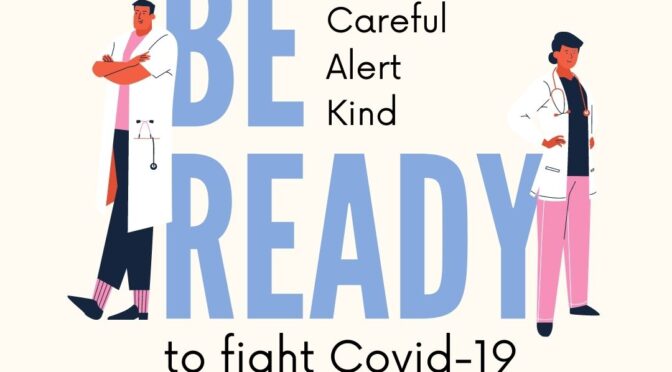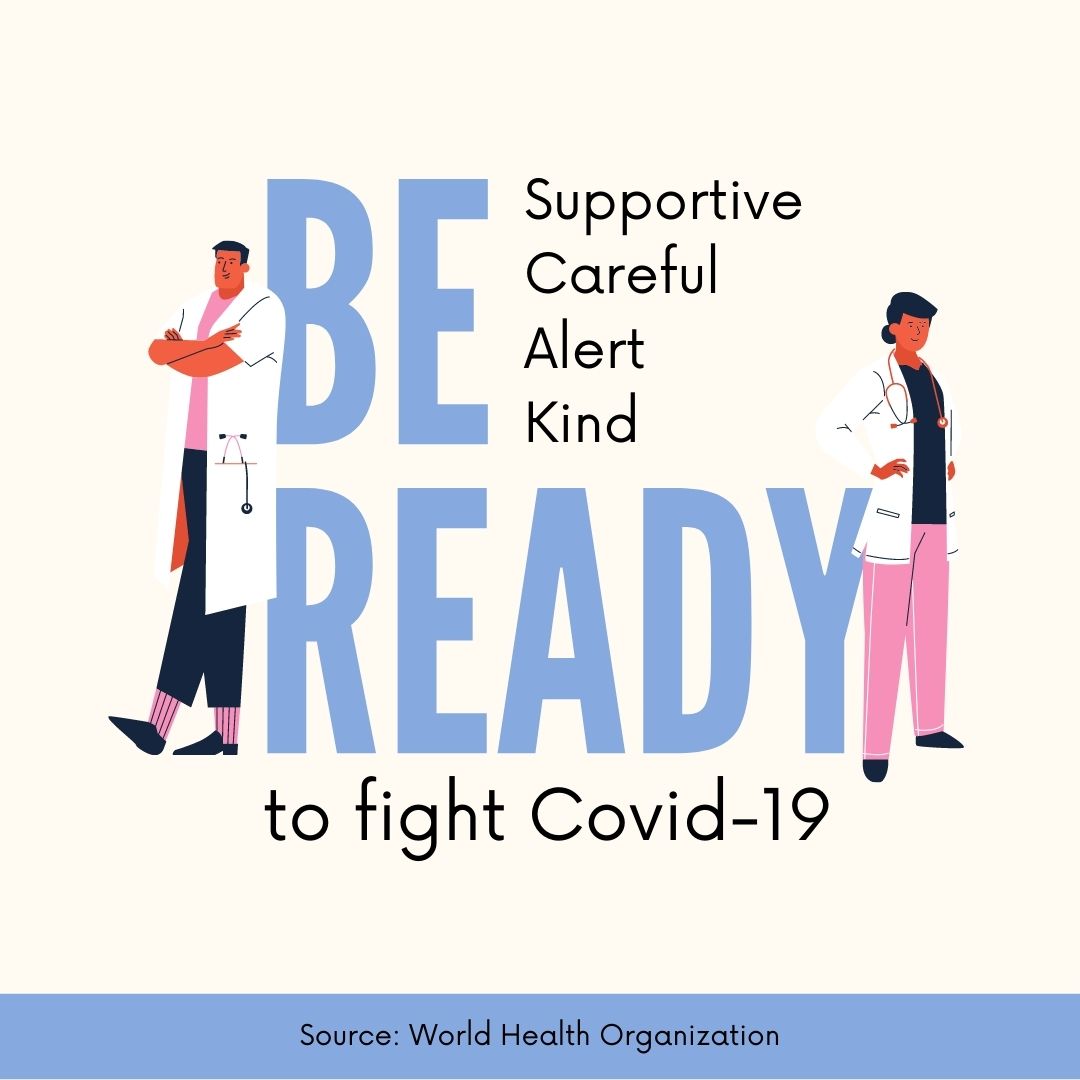Managing Your Finances During the Coronavirus Outbreak
Managing Your Finances During the Coronavirus Outbreak
The coronavirus has destabilized the economy and had impacts on workers across the globe. Taking steps to get help and taking the reins of your money can help you ride out the storm.
Many or all of the companies featured provide compensation to LendEDU. These commissions are how we maintain our free service for consumers. Compensation, along with hours of in-depth editorial research, determines where & how companies appear on our site.
Originally published: 3/19/2020 | Updated: 3/27/2020
The coronavirus outbreak is currently on everyone’s mind. Social distancing and other practices to reduce its spread are essential not only to your health, but to the health of others as well. With governments implementing measures to reduce the impact of the virus and businesses closing or reducing their hours, life as we know it has changed.
The coronavirus outbreak has already had significant effects on the economy. Three of the five biggest drops in the history of the Dow Jones Industrial Average have come during the crisis, and people are already feeling the impact of their hours being cut and their savings losing value.
To help protect people from many of the economic effects of the coronavirus, both the government and private lenders have offered relief to consumers.
This article will cover the lenders that have assisted borrowers, tips for managing your money during the coronavirus outbreak, and resources where you can find help.
Note: This article will be updated as new relief programs are announced.
On this page:
- A Look at How the Coronavirus has Affected People’s Financial Lives
- Government & Lender Programs Offering Relief for Borrowers Affected by the Coronavirus
- What the Federal Reserve Cutting Rates Means for Your Finances
- Tips for Managing Your Finances During the Coronavirus
A Look at How the Coronavirus has Affected People’s Financial Lives
The coronavirus has already had a significant effect on the economy. March 16th, 2020 marked the worst day for the stock market since 1987 and the third-worst day ever for the Dow Jones Industrial Average. The weak market performance and emergency conditions led the Federal Reserve to cut interest rates twice, dropping them to 0% to 0.25%.
Many companies have encouraged their employees to work from home, and other businesses have closed. In Massachusetts, restaurants have completely shuttered their doors by order of the governor, limiting them to offering delivery and takeout only in efforts to reduce contact between patrons.
Some of the most affected workers are those who participate in the gig economy. Most contract workers don’t get access to benefits like paid sick time and only earn money when they work. Given that 36% of Americans participate in the gig economy, this has wide-reaching impact and could leave many people without access to the level of income they’ve previously had— or without any income at all.
Government & Lender Programs Offering Relief for Borrowers Affected by the Coronavirus
The impact of the coronavirus is immense, but both the government and private lenders have announced efforts to provide relief for consumers. Here are some of the programs available.
Federal, State, & Local Government Relief Programs
Federal, state, and local governments have announced relief programs aimed at students, businesses, and individuals.
Economic Stimulus Package
On March 27th, the House of Representatives approved a $2 trillion stimulus package; the largest in U.S. history. The Senate already approved the bill on Marth 25th.
For Consumers
The package will provide one-time checks of $1,200 to all Americans with an adjusted gross income of $75,000 or less, or $2,400 for married couples filing jointly who collectively make less than $150,000.
Those making more will receive $5 less for every $100 they make over the thresholds. Additionally, families will an additional receive $500 for every child.
Only those with work-eligible Social Security numbers who are not claimed as a dependent by another taxpayer are eligible for the relief.
In addition to the relief checks, the government will expand unemployment protections by $600 a week for the next four months. Workers who are part-time, self-employed, or who work in the gig economy (such as Uber drivers) are eligible for the benefits.
Learn more about additional relief for student loan borrowers from this program in the Student Loans section below.
For Businesses
The bill includes $350 billion allocated for loans to small businesses to cover monthly expenses. If businesses do not lay off workers, the loans would essentially turn to grants and would not have to be repaid.
The package also includes $500 billion to help corporations who have suffered due to COVID-19.
You can learn more about these programs here.
Student Loans
Students have had to pack their bags and leave campus while they attend classes online. With many students losing their work-study or part-time jobs, the federal government announced an interest freeze on all federal student loans.
On 3/20/2020, U.S. Secretary of Education Betsy DeVos announced that all federal student loans would have interest rates set to 0% for a period of 60 days, during which borrowers have the option to suspend payments if needed.
The stimulus package mentioned above extended the interest rate freeze and the ability to skip payments until September 30, 2020.
Borrowers seeking Public Service Loan Forgiveness (PSLF) or forgiveness through an income-driven repayment plan who elect to skip payments during this time will still have those skipped payments count towards the requirements.
Furthermore, borrowers in default will have suspended payments count towards the student loan rehabilitation requirements. There will also be no garnishment of tax refunds for those borrowers in default.
Small Business Loans
The coronavirus outbreak has particularly impacted small businesses, as many have had to close their doors to customers. Even those that have remained open have seen far less customer traffic and may have trouble making ends meet.
The Small Business Administration announced disaster assistance loans available to businesses impacted by the outbreak. The SBA will work with state governments to provide low-interest loans to vulnerable companies and to work with all companies on their preparedness plans. Small businesses can borrow as much as $2 million with these loans to help them during this period.
State and local governments have also offered assistance.
- New York City is offering interest-free loans to businesses with fewer than 100 employees that have seen a 25% reduction in revenue.
- San Francisco is deferring business taxes and licensing fees and offering grants to microbusinesses.
- Washington state is offering tax deadline extensions and other aid.
- New Jersey is offering advice and programs to assist small businesses with their expenses.
If you own a small business, reach out to your local and state government to see what aid programs are available. The U.S. Chamber of Commerce also has a good list of resources for small businesses during the coronavirus outbreak.
Check out our guide to learn more about how small businesses can get help during the Coronavirus outbreak.
Mortgages
While the government has not implemented anything like payment deferment or interest freezes for mortgages, the Federal Housing Finance Agency has taken steps to remind lenders and borrowers of their options.
If you have an FHA loan and are having trouble making payments on your mortgage, you may be eligible for hardship assistance or forbearance.
In addition, on Wednesday (3/19/2020), President Trump announced that the Department of Housing and Urban Development will suspend foreclosures and evictions for mortgages insured by the FHA until the end of April. This policy is expected to impact around 8.1 million mortgages.
Private Banks & Lenders
While not many private lenders have announced specific programs to help borrowers manage their loans during the coronavirus pandemic, most have offered direct communication with borrowers having difficulty with payments.
- Ally Bank is allowing auto loan and mortgage borrowers to defer payments for up to 120 days with no late fees (though interest will still accrue). Also, consumers banking with Ally won’t be charged fees for overdrafts, expedited checks or debit cards, or for excessive transactions with savings accounts or money market accounts.
- American Express told The Points Guy that they are assisting customers through waiving fees (late and return check) and interest charges. In addition, American Express has several financial hardship programs that allow borrowers to lower monthly payments, receive relief from fees, lower interest rates, and prevent accounts from going past due.
- Bank of America will reportedly allow customers to skip payments on auto loans, credit cards, and mortgages, though interest will still accrue.
- Capital One told Forbes that its customers could request assistance with meeting minimum bill payments, defer their loans, or ask for fees to be waived during the outbreak.
- Chase is offering customers advice on personal accounts, business expenses, and travel changes and cancellations.
- Citi is offering fee waivers for monthly service fees and early CD withdrawal penalties up until April 8th (at least). In addition, during the same time frame, the bank will waive monthly service and remote deposit capture fees as well as penalties for early withdrawal from CDs.
- Discover will be offering relief to qualified customers including waiving fees and adjusting payment timing.
- Fifth-Third Bank has created a number of programs to help its mortgage, credit card, small business, and auto loan customers. Most of these allow payment deferrals for 60 to 90 days with no fees. See Fifth-Third’s page (linked above) for more information.
- Geico is allowing policyholders to skip payments through April 30th. Note that the full amount of these skipped payments will still be due once the pause period is over.
- Goldman Sachs is allowing Apple Card users and Marcus personal loan borrowers to skip March payments with no interest accrual.
- PNC encourages customers to use online banking whenever possible and to contact the bank for assistance or extensions of payment due dates.
- Sallie Mae does not have a specific program but encourages borrowers to reach out if they’re having trouble making payments.
- Truist is offering payment relief assistance on loans and credit cards, waiving ATM surcharge fees, and providing 5% cash back to BB&T and SunTrust consumer credit cardholders on qualifying purchases.
- U.S. Bank reduced the pricing on its loans for businesses and consumers. The Simple Loan product allows consumers to borrow between $100 to $1,000 and only requires $6 to be repaid (on top of the original loan amount) per $100 borrowed. U.S. Bank personal loans have APRs reduced to 2.99%.
- Wells Fargo encourages consumers to contact them if they need assistance with their loans and has offered donations to support the international response to the disease.
- Ford, Nissan, GM, and Toyota are reportedly offering assistance to borrowers centered around the deferral of payments.
What the Federal Reserve Cutting Rates Means for Your Finances
One of the responses to the coronavirus outbreak is the Federal Reserve’s reduction of interest rates. The Fed reduced its benchmark interest rate to 0% to 0.25%, meaning that banks will lend money to each other at this rate.
The federal funds rate heavily influences the interest rates for consumer loans, so the interest rate cut means that you’ll likely see rate drops across the board. Savings accounts will pay less interest, but loans with variable interest rates, like credit cards, will also see rates drop.
Ask the Expert

Gary Ulrich, CFP
Certified Financial Planner with Financial House
Newly issued loans will also come with lower interest rates than they previously did. New student loans should carry lower rates, though most existing loans have fixed rates that won’t change.
Refinancing your mortgage may now make sense, especially if you can reduce your rate significantly.* Consolidating existing debts using a new, fixed-rate personal loan could also help you save some money on interest charges
Here are some resources if you’re interested in refinancing a mortgage or consolidating debt:
*Due to mortgage refinancing demand 3-4 weeks ago, lenders are outpricing themselves to push people away from refinancing temporarily. Rates have increased quite a bit over the past week for a mortgage. The general tip would be if you can save 1% or more on a mortgage, that’s a good time to refinance.
Tips for Managing Your Finances During the Coronavirus
Managing your money can be difficult at the best of times. The additional stress and complications that the coronavirus adds don’t make it any easier, especially if your income is affected. Here are a few tips for managing your money during the coronavirus outbreak.
- If you have loans, try talking to your lender about relief options. Some have offered to defer payments or have announced other ways that they can help borrowers.
- Reduce your spending where you can. If you’re practicing social distancing, this should be easier than you’d expect. You can cut out expenses like eating at restaurants or going to the movies and use that money for necessities.
- Look at your state’s requirements for unemployment insurance. If the coronavirus affects your ability to earn an income, you might be eligible for benefits.
- If you’re stuck at home, look for options for online work. If you have a skill like graphic design or writing that you can leverage, try to pick up some freelance work. There are all sorts of jobs that you can do at home or on your own hours and every little bit helps.
- Use online banking. If your bank has online or mobile banking, it makes sense to use it rather than visiting a branch or an ATM.
- Try not to react too strongly to the stock market. The news can look bad, but history has shown that investors who stay the course tend to perform better than those who try to time the market. Look at the story of the worst market timer (but best-buy-and hold investor) ever for some inspiration.
- Reach out to a financial advisor. They can help calm your fears, make sure you make the most of your money, and avoid scams that are popping up in the wake of the coronavirus’s effects.
- Watch out for scams. Many people have tried to profit off of the panic caused by the coronavirus, offering “miracle cures” or protections against the disease that don’t work.
- Take stock of your finances. If you haven’t built a budget in the past, use this time to make one. It can help you make the most of your money now and puts you in an excellent position to manage your finances once the coronavirus passes.
- Try to build an emergency fund. Take any step that you can think of that will leave you in a better financial situation than you were in before.
Ask the Expert

Gary Ulrich, CFP
Certified Financial Planner with Financial House
The coronavirus has made life stressful and frightening, but it too will pass. Take this chance to take control of your finances, and you’ll be better prepared for the future, regardless of what happens to the economy.
Additional resources:
Author: TJ Porter
![]()




